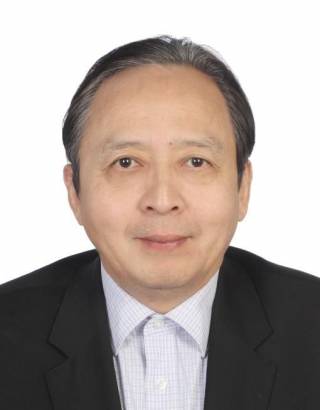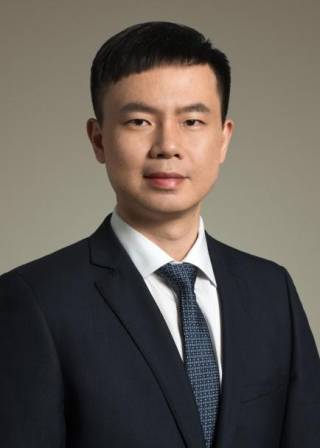China-Europe Innovation Forum #1, June 7th 2022, at 9.15 – 10.45 Helsinki time (14:15-15:45 Beijing time)
Organised by China-Europe Research Network for Innovation and Sustainable Development (CERNISD).
CERNISD is a collective of scholars from Europe and China who are committed to the interactions in science, technology and innovation (STI) for sustainable development. The network aims to develop, promote, and disseminate latest research on China-Europe STI interactions related to global sustainability, as well as advance comparative studies in the context of innovation ecosystems in China and Europe. The network is open to academic societies, research organisations as well as individual researchers who share the vision of CERNISD. The CERNISD’s founding members are: Chinese Association for Science of Science and S&T Policy (CASSSP), Sino-Finnish Education Research Centre (SFERC), Tampere University, Université du Luxembourg and Lise Meitner Research Group “China in the Global System of Science”, Max Planck Institute for the History of Science (MPIWG), Berlin.
It is open to research organizations engaged in research and innovation.
Program (Helsinki time)
Moderator: Dr. Yuzhuo Cai
9:15-9:20 Opening remarks by Prof. MU Rongping,
9:20-9:40 Recent trends in European approaches to research collaboration with China by Dr. Anna L. Ahlers, Recording
9:40-9:50 Comments by Prof. MU Rongping
9:50-10:10 Intellectual Property Governance in Cyberspace by Prof. HUANG Can ppt slides
10:10-10:20 Comments by Dr. Maximilian Mayer
10:20-10:45 Q&A
Commentators:
Prof. MU Rongping

Mr. Mu Rongping, receives B.S. and M.S. from University of Science and Technology of China, and Dr. Phil. from Technische Universität Berlin, Germany. Dr. Mu is director-general of Center for Innovation and Development of Chinese Academy of Sciences since 2006,editor-in-Chief of the Journal of Science Research Management. Dean of school of public policy and management, Chinese Academy of Sciences, President of the Chinese Association for Science of Science and S&T Policy Research. Dr. Mu is a member of the Governing Board of ISTIC since 2014. He was director-general of Institute of Policy and Management of Chinese Academy of Sciences. Dr. Mu has been involved in drafting policy documents concerning innovation capacity-building in China, and published more than 40 papers in peer-reviewed journals and several books concerning Technology Transfer, Technology Foresight, and Innovation Development, and Industrial Competitiveness. His research interests include S&T&I Policy, Foresight, R&D Management & Evaluation, and Industrial Competitiveness.
Dr. Maximilian Mayer

Dr. Maximilian Mayer is Junior-Professor of International Relations and Global Politics of Technology at University of Bonn. He worked as assistant professor at the University of Nottingham Ningbo China (2019-2020) and was research fellow at Renmin University Beijing (2018-2020). Maximilian taught as Research Professor at Tongji University, Shanghai (2015-2018), as senior researcher at the Munich Center for Technology in Society, Technical University Munich (2018-2019) and worked at University of Bonn’s Center for Global Studies as managing assistant and senior fellow (2009-2015). Maximilian’s research interests include the global politics of science, innovation, and technology; China’s foreign and energy policy; global energy and climate politics; theories of International Relations.
Speakers
Dr. Anna L. Ahlers

Lise Meitner Research Group “China in the Global System of Science”
Max Planck Institute for the History of Science (MPIWG), Berlin
Topic: Recent Trends in European Approaches to Research Collaboration with China
Abstract: European countries and the People’s Republic of China have a long and solid history of academic exchange and collaboration. Recently, however, public debate about international scientific collaboration is becoming increasingly polarized. Although attitudes in the academic community on how to manage collaboration in the future are different from media and political statements, it also becomes clear that there are hardly any in-depth and systematic assessments of the differences and similarities in the expectations of the cooperating partners. The talk will summarize the main trends in recent European approaches to scientific cooperation with China and point to some new avenues of imagining cooperation between the two sides.
Biography:
Dr. Anna Lisa Ahlers is head of the Lise Meitner Research Group » China in the Global System of Science« at the Max Planck Institute for the History of Science in Berlin. A sinologist and political scientist by training, her research areas include Chinese local governance and administrative reforms, the interactions of science and scholarship and the political regime in China, as well as the comparative analysis of modern political regimes. She is a member of the Young Academy of the Berlin-Brandenburg Academy of Sciences and Humanities & the National Academy of Sciences Leopoldina, and part of the editorial team of the ‘Journal of Chinese Governance’.
Prof. HUANG Can
 National Institute for Innovation Management and Institute for Intellectual Property Management at School of Management, Zhejiang University, China
National Institute for Innovation Management and Institute for Intellectual Property Management at School of Management, Zhejiang University, China
Topic: Intellectual Property Governance in Cyberspace
Abstract: Since a patent system was established in Venice city-state in 1474, human society has a history of protecting and using intellectual property rights for a few hundred years. However, with the rapid development of digital economy, production and recreation have expanded from physical space to cyberspace. In cyberspace, information spreads fast and innovation is easy to be copied; intellectual property infringement can cause great damage in a very short time; infringer is easy to hide and remove the evidence. Therefore, the traditional intellectual property system that has successfully protected great innovation in the era of industrial revolution can no longer meet all the needs of protecting innovation in the era of digital economy. In order to solve the problem of intellectual property governance in cyberspace, it is necessary to build an intellectual property governance system that integrates government governance system, market governance system and social governance system. We can rely on three means which include technological empowerment, institutional innovation and multiparty co-governance to achieve the effectiveness and efficiency of governance. In recent years, both Europe and China have set digital transformation as priority for future development. This presentation sheds some light in which areas Europe and China can collaborate and exchange to improve governance in cyberspace.
Dr. Can Huang is Professor, Associate Dean, Executive Deputy Director of National Institute for Innovation Management and Co-Director of Institute for Intellectual Property Management at School of Management, Zhejiang University, Hangzhou, China. He is a Youth Chang Jiang Scholar awarded by the Ministry of Education of China. He is a member of the technical committee of the ISO 56000 Innovation Management Standard and the National Knowledge Management Standardization. He is an Associate Editor of Technovation and Deputy Editor of Management and Organization Review and a member of the editorial boards of several other academic journals. Prof. Can Huang’s research interests include innovation management, intellectual property right and science and technology policy.
Moderator:
Dr. Yuzhuo Cai
 Faculty of Management and Business, Tampere University, Finland
Faculty of Management and Business, Tampere University, Finland
Biography:
Dr. Yuzhuo Cai is Senior Lecturer and Adjunct Professor at the Higher Education Group (HEG), Faculty of Management and Business, Tampere University, Finland. He has been with the HEG for 20 years and was the Acting Professor of the unit from August 2013 to July 2014. He is the Director of Sino-Finnish Education Research Centre, JoLii, and Deputy Director of Research Centre on Transnationalism and Transformation at Tampere University. He is also Editor-in-Chief of Triple Helix: A Journal of University-Industry-Government Innovation and Entrepreneurship. He has over 100 academic publications in the fields of higher education research and innovation studies.
Cover photo by Edward He on Unsplash

